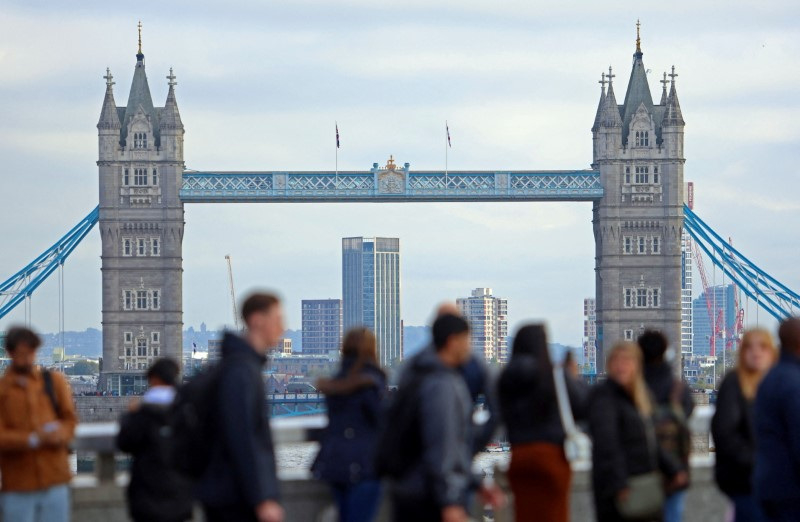By David Milligan
LONDON (Reuters) – British workers’ wages rose at their slowest pace in almost two years, amid a surprise drop in unemployment, reassuring the Bank of inflationary pressures.
Excluding bonuses, average weekly earnings rose 5.4% in the three months to the end of June, compared with 5.8% in the three months to May, the smallest increase since August 2022, according to figures (ONS).
However, the jobless rate — based on a survey the ONS is currently reworking — fell to 4.2% from 4.4%, the lowest level since February, contrary to expectations in a Reuters poll of economists.
The pound strengthened immediately after the data was released.
When it cut interest rates on August 1, nearly a year after hitting a 16-year high of 5.25%, the Bank of England said it would keep a close eye on wage growth. Investors see a one-third chance of another rate cut in September.
Wages are still rising at twice the rate the Bank of England considers consistent with keeping inflation at its 2% target. Wednesday’s data may show prices are back above target.
“Today’s data is consistent with gradual and cautiously restrained policy interventions. But…solid GDP growth, if sustained, should lead to a solid recovery in the labor market — which could result in a shallow rate cut cycle.” said Sanjay Raja, chief UK economist at Deutsche Bank.
The number of people working increased by 97,000, more than the 3,000 forecast by economists.
Employers hope that lower inflation will ease wage pressures. The Chartered Institute of Personnel and Development said on Monday that employers are expected to increase wages by 3%, the slowest rate in two years.

“Internet addiction in terminals. Award-winning beer expert. Travel expert. General analyst.”








More Stories
Oil falls for 4th consecutive session on US stocks and conflict in Middle East – Money Times
Youth development in UK poultry farming is a new initiative in international production
Robert F. Kennedy Jr. considers abandoning campaign and endorsing Trump